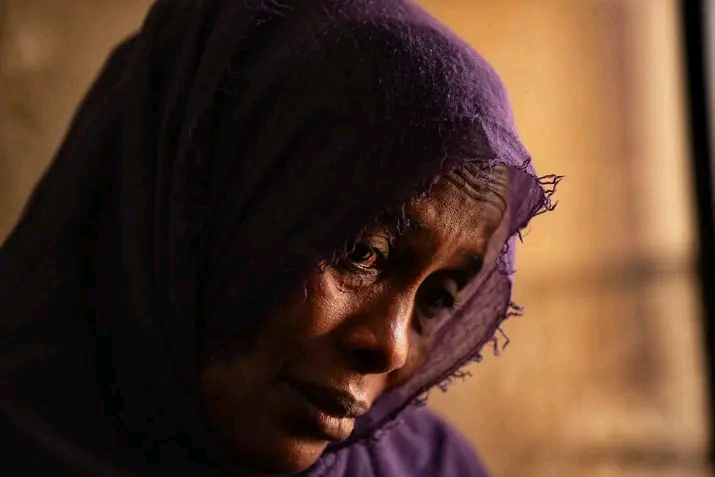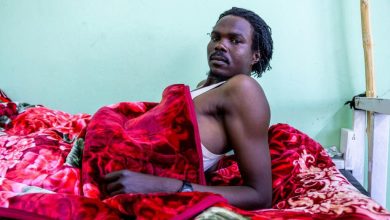
Since the outbreak of war between the Sudanese army and the Rapid Support Forces (RSF) in mid-April 2023, the devastating impact on Sudanese women has been profound. For over a year, women have paid a heavy price, as both parties in this senseless conflict have weaponized women’s bodies—subjecting them to various forms of violations, especially by individuals wearing RSF uniforms. These include sexual exploitation at gunpoint, rape, abduction, sexual slavery, and forced marriages.
Women continue to suffer catastrophic consequences due to ongoing fighting in hotspot areas, particularly in the capital Khartoum, Darfur, and Gezira State.
Many rape survivors face enormous psychological and social challenges, including trauma from carrying and bearing children out of wedlock. They describe feeling stigmatized, isolated, and burdened by shame, leading to depression, anxiety, and, in some cases, suicide.
Shocking Statistics
Sudan’s Ministry of Social Welfare previously reported that 11 women—most of them in their twenties—were raped by RSF members, leading to pregnancies and childbirth. As these women had never been married, four of the resulting children were handed over to orphanages, and procedures are underway for the remaining seven.
Due to ongoing violence and a lack of safe passage to more secure areas, official figures likely underrepresent the true number of rape survivors. Many victims remain silent out of fear of stigma.
Some women, pregnant from rape at gunpoint, resorted to unsafe abortions, risking their lives. This prompted the Unit to Combat Violence Against Women to submit a formal request to the Attorney General, calling for the approval of legal abortions in health facilities within the first trimester, consistent with internationally recognized medical protocols for exceptional cases.
Brutal Desires
Sudanese citizen Mai Abdullah, who lives in the Al-Fitehab district of Omdurman, shared her harrowing experience:
“I was raped by men in RSF uniforms. They stormed our home at dawn, beat my father and brothers, and threw them into the street. My mother tried desperately to shield me from their predatory eyes, but it was in vain.”
“Two of them raped me, ignoring our screams and pleas. We tried to keep it hidden. Eventually, we fled to a safer state. But soon I began to feel pain and symptoms that made me realize I was pregnant from that cursed night. Medical tests confirmed it. By then, it was too late for an abortion. I gave birth to a baby girl, but honestly, I didn’t feel a shred of maternal instinct. I couldn’t even bear to look at her. I resented her presence and refused to deal with her. My mother took care of her until she was handed over to the authorities.”
She added:
“The shame will haunt rape victims for life, and society’s refusal to accept their reality makes it worse. Who is accountable for this? What future awaits these children—born out of violence, undocumented, and dumped into overcrowded orphanages? Who will be held responsible for these atrocities?”
Legal Abortion Demands
Salima Ishaq, Director-General of Sudan’s Unit to Combat Violence Against Women, stated:
“Sudanese women have endured serious violations during the war, especially sexual violence. As the war has spread into previously safe states like Gezira, rape cases have increased, leading to more pregnancies and childbirths.”
She emphasized:
“There is no accurate data on rape survivors due to families staying silent and not reporting the cases. Our information mainly comes from health facilities, which themselves operate under threat. This makes it difficult to assess the full scale of rape, abduction, and slavery amid widespread displacement.”
She stressed the importance of raising awareness:
“If a woman is raped, it’s crucial to report it within 72 hours to prevent pregnancy. Delays result in serious consequences and make safe, legal abortions after the first trimester nearly impossible.”
Ishaq noted that legal abortion is part of internationally recognized medical protocols for exceptional circumstances, such as rape or maternal health risks. Her unit has submitted a memorandum to the Attorney General calling for approval of abortion under medical supervision.
She also warned that parentless children in orphanages have died due to lack of food and the difficulty of moving them between states, urging society to consider foster care solutions.
Systemic Gaps and Social Challenges
Social work specialist Thuraya Ibrahim explained:
“There is reliable and categorized data on women and girls who experienced sexual violence. However, the actual number likely far exceeds what has been documented, largely because of the absence of safe routes to access protection services.”
She urged Sudanese society to set aside traditions and taboos in such extreme circumstances and prioritize:
Emergency contraception (pills or injections),
Treatment of sexually transmitted infections,
Medical care for injuries resulting from violent rape—particularly for young women who have never been married.
Ibrahim called on the state to play a more active role:
“The government must equip facilities to ensure medical and social protection. It must also support families and make it clear that the challenges are complex and solutions must be collective—not left to individuals alone.”
Panic and Trauma
Psychologist Ahmed Sar Al-Khatim commented:
“It’s truly heartbreaking to see forced sexual acts under such brutal conditions. Many women were raped in front of family members or in public.”
He added:
“Rape leads to serious psychological effects—panic attacks, depression, withdrawal, and in many cases, suicidal thoughts—especially when even the home is no longer a safe space.”
Recovery, he said, requires professional psychological therapy.
“Married survivors fear the collapse of their relationships. Single women fear for their futures. Healing and reintegration into society are crucial steps in overcoming
Women as Weapons
Human rights activist Haneen Ahmed said:
“In Sudan’s war, women’s bodies have been used as a weapon—one of the most brutal and destructive weapons of all. The consequences have been catastrophic, especially for women who have endured more than a year of suffering.”
She added:
“As the fighting drags on, women continue to face all forms of abuse, especially sexual violence. We hope for an end to this war so we can begin the work of restoring stolen rights.”
She urged Sudanese women to remain resilient and reject harmful coping mechanisms, in the face of such savage violations.




